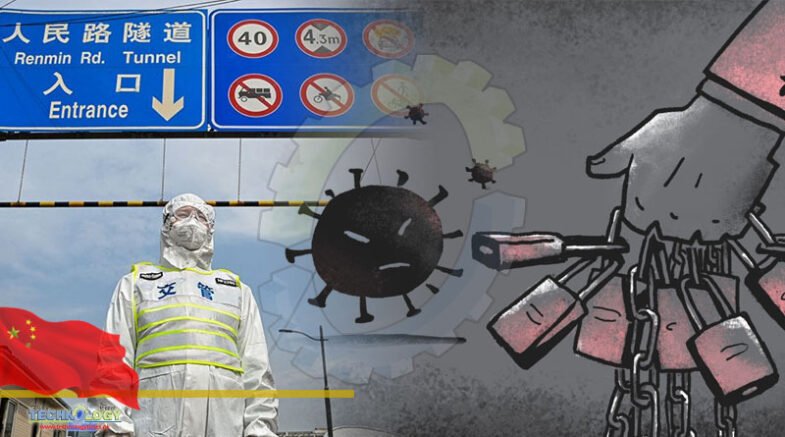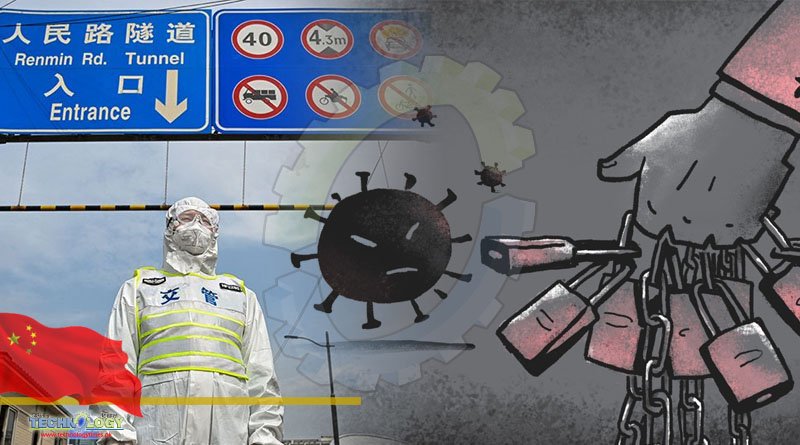China’s Covid control strategy is ‘completely correct’, health official says, while promising to adapt measures to changes in the virus

China’s Covid control strategy is ‘completely correct’, health official says, while promising to adapt measures to changes in the virus. China will persist with “dynamic zero-Covid”, national health authorities said, despite rising public and local government pressure to move on from the costly and disruptive policy.
But officials also pledged to avoid excessive interruptions to public life, and to refine the approach as the pattern of the disease changed.
“Winter will see a new wave of Covid-19 globally. In China, coronavirus outbreaks have rebounded in some parts of the country as the risks of flu grow,” Hu Xiang, an official from the National Administration of Disease Control and Prevention, said in Beijing on Saturday.
“We will hold fast to ‘dynamic zero-Covid’ and continue to improve control measures to adapt to changes in the virus.
“Practice has proved that our Covid control strategy and strategic measures are completely correct, most economical and effective,” she said when asked at a press conference if the relaxation of coronavirus curbs in some parts of the country signalled subtle changes in implementation of the policy.
The subtle shifts, such as the decision by some local governments to drop to tracking requirements, follow months of analysts’ predictions that zero-Covid restrictions might be relaxed after the politically sensitive 20th Communist Party congress, which ended two weeks ago.
This has further fuelled hopes of the imminent easing of a policy that has severely disrupted economic and social activities across the country.
Health authorities in Fuzhou, capital of southeastern Fujian province, have stopped collecting and publishing the location history of asymptomatic patients.
Also, PCR tests are no longer required for some airports and high-speed train routes, though official announcements to this effect were deleted soon after they were posted online, according to Chinese news reports.
On Friday, Hong Kong’s Hang Seng Index rose 5.4 per cent on unconfirmed social media reports about the central government preparing to end zero-Covid. The restrictive policy has included erratic and prolonged lockdowns, repeated mass testing, lengthy quarantine and strict border controls.
While health officials said on Saturday that dynamic zero-Covid remained the best policy to protect the public, they reiterated their pledge to improve its implementation to avoid massive and protracted lockdowns.
They also censured the government of Zhengzhou for replacing control measures with a snap lockdown, and local authorities in provinces including Guizhou and Sichuan for charging for quarantine facilities.
Local authorities should rectify these malpractices or they would be held accountable in accordance with the laws, the health officials warned.
Zhengzhou, the capital of central Henan province, hit the headlines last week when Covid-19 curbs following an outbreak at the world’s largest iPhone factory sparked a panicked worker exodus.
Public grievances against the human cost of zero-Covid have been mounting, with reports of food shortages in some locked down communities, and lives lost to medical emergencies or overzealous implementation by local officials.
A three-year-old boy in a locked down district in northwestern Lanzhou died of suspected gas poisoning on Tuesday, as his anguished father pleaded with authorities in vain for help to get him to hospital.
The tragedy, which came to light after the father made a series of online posts, sparked public outrage both locally and on social media.
Death of 3-year-old boy in China sparks outrage over continuing zero-Covid lockdowns
Officials in Beijing said the current Covid control strategy was still capable of effectively controlling the spread of new coronavirus sub-variants that may be more contagious than the Omicron strain.
The officials did not name any new strain, but a number of Omicron sublineages are now circulating in various countries, including China, with scientists paying close attention to the BQ.1 strain in the West and the XBB in Asia.
Wang Guiqiang, director of the Peking University First Hospital’s infectious diseases department, said mask-wearing, hand hygiene and social distancing should continue.
‘Tridemic’ warning of Covid, flu and reduced immunity in China this winter. China is also on high alert for the potential overlap of seasonal influenza and Covid-19 outbreaks this winter.
Wang said anyone running a fever should get tested in hospital to find out whether it was the flu or Covid-19.
He also asked people aged over 80 to get vaccinated against the coronavirus to reduce the risk of severe disease or death. While 90.2 per cent of China’s population is fully vaccinated, for over-80s the rate is just over 86 per cent.
China’s southern and most populous province Guangdong is battling a widening Covid-19 outbreak, reporting nearly a quarter of the 3,700 or so cases logged nationwide on Saturday.
Other provinces reporting infections include Inner Mongolia, Xinjiang, Hunan, Heilongjiang and Shanxi.
Guangzhou, the capital of Guangdong, said it was facing its most complex and severe Covid-19 outbreak since the start of the pandemic three years ago.
The city of 18 million reported 746 new local cases, out of 888 logged across the province. Haizhu district, a textile and garment industry hub, remains the hotspot in the Guangzhou outbreak, accounting for almost 85 per cent of the new cases.
The city has reported around 3,700 local coronavirus infections in the two weeks since October 22, nearly two-thirds of which were detected in Haizhu.
Guangzhou has marked several locations in Haizhu and Baiyun districts as medium or high risk, with public movement restricted. Non-essential businesses, dine-in services and some transport services have been suspended, and repeated citywide testing is being carried out.
“It is hoped that Guangzhou can make full use of these few days to achieve the greatest control effect at the least cost while minimising the impact of Covid on economic and social development,” said Zhang Yi, deputy director of the Guangzhou Municipal Health Commission.
Originally published at South China Morning Post
